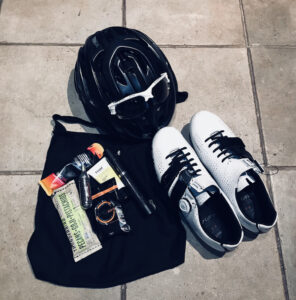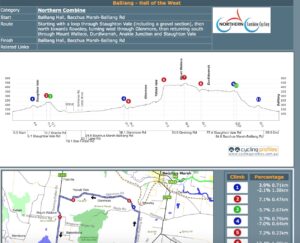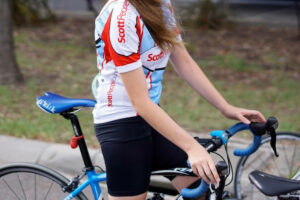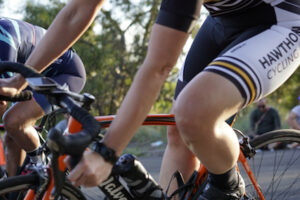PART 2 OF 3: I WANT TO RACE WELL. WHAT DO I DO NOW???
This series of articles was inspired by a few conversations I had with women who are relatively new to racing as well as a conversation in SheRace; SheRace is a closed Facebook group dedicated to encouraging more women into racing.
As noted in the previous article, there are factors that you can control and factors that are outside of your control. How we manage these factors have an impact on your experience of the event as well as your performance in the event.
This article has a particular focus on cycle racing, however some of these ideas can easily be applied across to other sports wth some creative thinking. Further creative thinking might enable you to extrapolate these ideas to non-sports related activities.
Taking the uncertainty out of racing
If we struggle to manage the way we deal with uncontrollable and controllable factors this can mean that we could feel anxious. When we feel anxious there are things we can do to help us manage this anxiety, taking the uncertainty out is helpful.
Uncertainty is a big part of anxiety. Knowing all the little details about the process of racing and about the particular race and course that you’ve entered is going to make managing your preparation for, and performance during, the event more manageable and enjoyable.
Before the race…
Get as much information about racing as you can (ask lots of questions of those with experience). These are factors that are outside of your control, but the choice to gather the information is within your control and will enable you to manage other factors more easily. Here is a list of the wort of questions questions you might ask:

- what do I need to take?
- what should I wear when I race?
- how much money do I need to take?
- are there toilets available at the venue/location?
- where’s registration?
- can I ride the course before the race starts?
- do I need lights?
- do I need to take food with me for before, during or after the race?
- and anything else you can think of that you need/want to know…
About a specific race…
Get as much information about the course that you’re planning to race (again, ask lots of questions). You don’t have any control over the course chosen for a specific race, but you do have control over how much information you choose to seek about the course. Knowing these details can make other controllable factors easier to manage.
 where is the race?
where is the race?- are there hills, or mountains?
- is there a QOM or a sprint?
- how long is the race – time and/or distance?
- how long will it take to get there?
- is there a neutral start?
- is the event on a closed road or do I have to contend with car traffic?
- what’s the weather likely to be – rain, cold, hot. windy?
- and anything else you can think of that you need/want to know…
During the race
Knowing how to manage the uncertainty of racing during the event is to a large degree about managing mindset. But being able to hold and consider information about the particular race and course in your mind is valuable. Can you remember that there are one or two sprints or one or two Queen of the Mountain (QOM) climbs? Can you remember the distance of the event? Do you have you computer set up to show you the information you need to manage your performance (distance, time raced, speed, heart rate, power (if you have it), cadence)? Do you know anyone racing with you? Are they of a similar ability and can I stay with them throughout the event?
Taking control of your training
Taking control of your training means managing factors that are within your control. This is what we choose to do to prepare for an event in the weeks and months leading up to an event, cycling or other sport. There are three elements to consider when you choose to take control of your training.
FITNESS & STRENGTH
Consider what you might need to do to train for the event to get the fitness and strength that will make the event more enjoyable. Making a decision to ride a 100km event if you’ve only ever ridden 20kms might make that event difficult & unenjoyable. But gradually building up to the event distance in the lead-up to the event is likely to make the experience more pleasant and enjoyable. You’ll be more likely to ride the distance comfortably and finish feeling good, albeit maybe tired.

When you choose to enter a race its helpful to have ridden a similar distance at a higher intensity than usual. Criteriums require an ability to perform repeated shorter more intense efforts than road races or time trials. It can sometimes be difficult to get this fitness and strength in training. Sometimes it’s easier to just enter and race as many crits as you can to develop the fitness and strength needed. Racing is a good way to develop race fitness.
Having a conversation with others who might have been done more racing than you can be helpful to understand what might be required to train for a specific event. Many people are more than happy to share their knowledge. Another resource might be employing a coach to assist you in improving more fitness and developing the required strength.
SKILLS & STRATEGY
Gaining skills and learning various strategies can happen in a number of ways. Watching racing is helpful. Doing bunch rides can be helpful in developing the basic skills needed to race in bunches. Sometimes, though, entering and challenging yourself to compete or participate in events or races is a great way to develop skills and learn strategy. Riding or racing in a bunch and learning to feel comfortable with other riders around you, watching the other riders to see what they do and how they ride safely, and paying attention to the various strategies they use; can you try that next race?

Sometimes racing is not about winning, but racing is about learning through experience. When I’m training for a race I often use weekly races as a training session, I’m not there to win, but to test myself. When I was training for the World Masters Track Championships in 2008 I was racing track twice a week. With the help of my coach at the time, my focus in those weekly races was to increase my speed, to try different tactics, to build up my endurance, and to just have the experience of racing in bigger bunches.
MINDSET…
As noted in the previous article this is the factor that makes a professional cyclist stand out from the amateur, and what creates the difference between two riders of equal ability.
This will be discussed in Part 3 of this series.
Images of cyclists by @fullgasimagery and are used with permission.
Image of HoTW course details taken from cyclingprofiles website.
